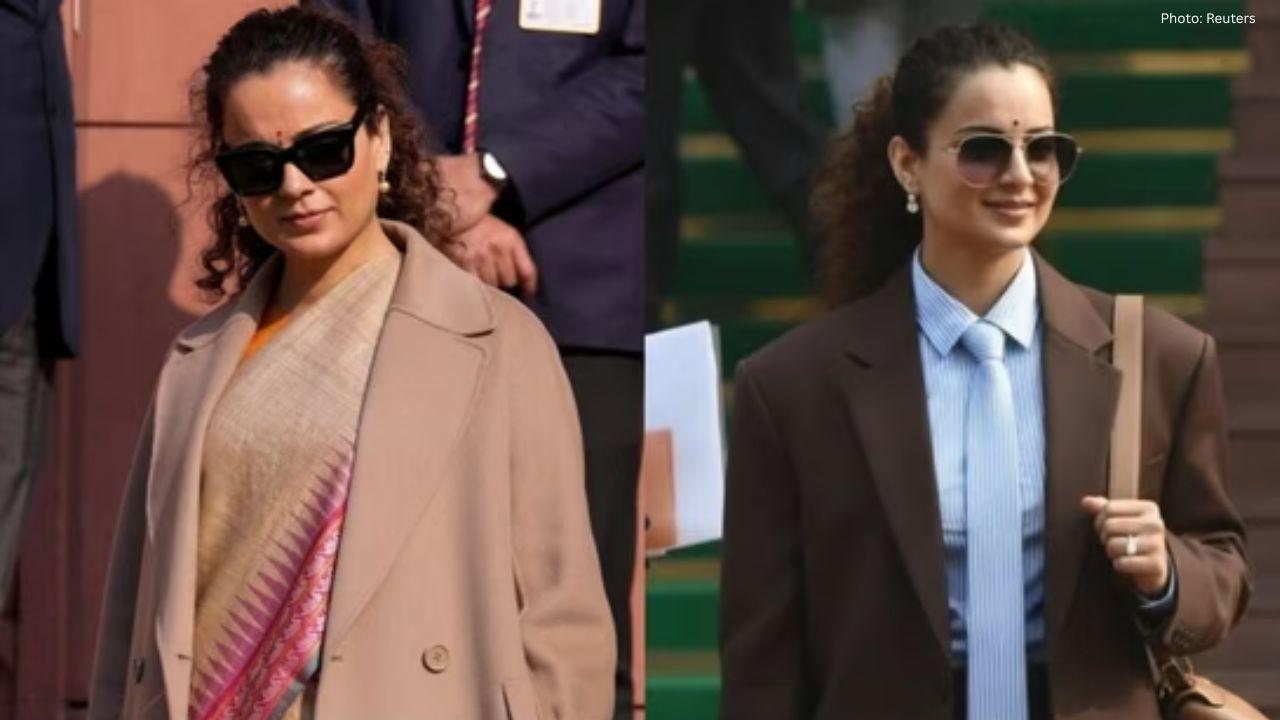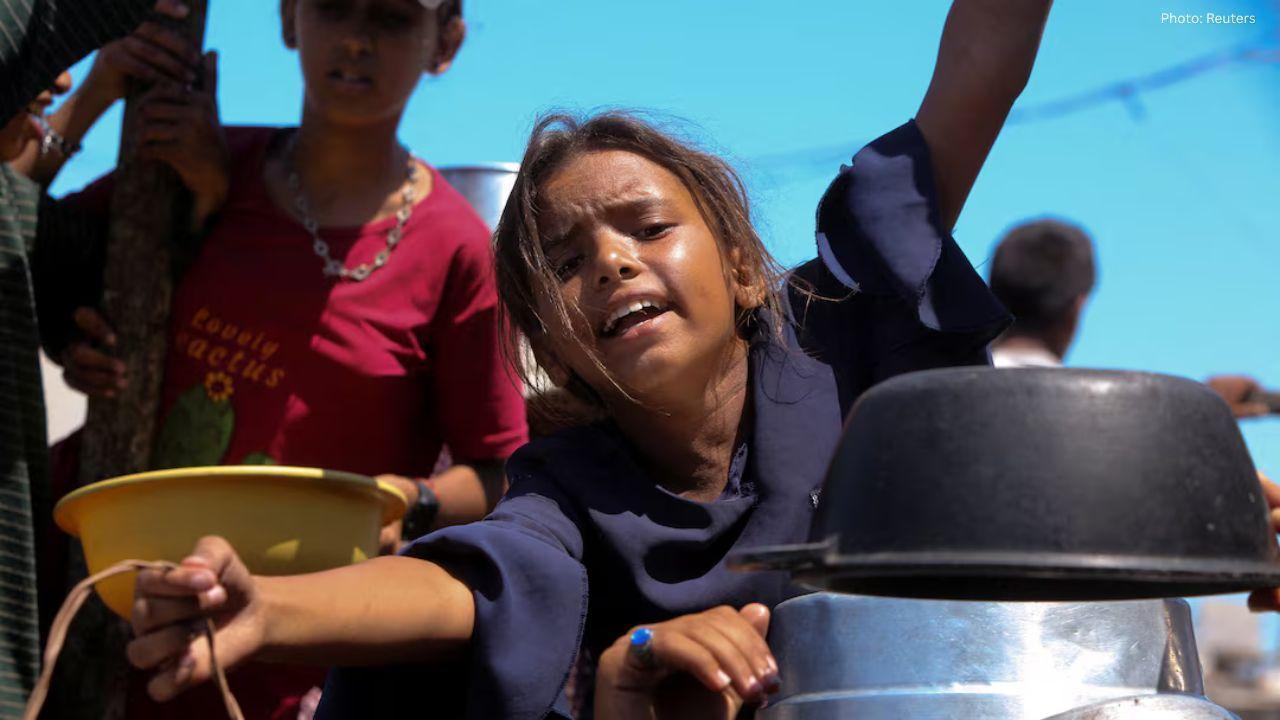You have not yet added any article to your bookmarks!

Join 10k+ people to get notified about new posts, news and tips.
Do not worry we don't spam!

Post by : Anis Farhan
In a striking example of geopolitics intersecting with sports, Pakistan has withdrawn from the 2025 Men's Hockey Asia Cup, scheduled to be held in Rajgir, India. Citing security risks amidst heightened political tensions, the decision reverberated across diplomatic and sporting communities alike. The Asian Hockey Federation swiftly confirmed replacements for Pakistan and Oman, with Bangladesh and Kazakhstan stepping in. As India prepares to host the tournament, the withdrawal has altered expectations and raised existential questions about the role of international sport in politically tense landscapes.
The Pakistan Hockey Federation (PHF), at the direction of national authorities, informed the continental governing body that their team would not participate in the tournament. This came despite India providing assurances of visas and security arrangements, and Hockey India extending strong invitations. Nonetheless, the PHF cited security concerns, referencing the broader regional tensions that followed a violent incident and cross-border military responses. Despite diplomatic overtures, the withdrawal stood firm, leaving host India to rearrange the tournament structure with new teams.
The Asian Hockey Federation acted quickly to preserve the tournament's viability. Bangladesh replaced Pakistan, and Kazakhstan was brought in for Oman, who also withdrew—reportedly due to financial constraints. These replacements helped maintain the planned eight-team lineup. Teams were allocated into two pools: India, Japan, China, and Kazakhstan in Pool A; Malaysia, South Korea, Bangladesh, and Chinese Taipei in Pool B. This ensured that tournament format remained intact—with preliminary rounds leading into a Super 4 stage and, ultimately, a final.
Rajgir, in India’s Bihar state, is gearing up to host the event in early August. The state government, led by the Chief Minister, launched a promotional drive across districts to ignite public interest. Mascots and trophies were unveiled with much fanfare, signaling pride in hosting an international event for the first time. National players, local officials, and sports administrators have rallied around the idea of showcasing Bihar’s sporting infrastructure and hospitality. For Bihar, this is an opportunity to step onto the continental stage.
The incident follows a pattern where political tensions impact sporting relations. The Pahalgam attack and a subsequent military response raised alarm in Pakistan about potential security threats to their athletes. Though India insisted it would facilitate safe passage and fair play, foreign policy decisions ultimately overshadowed sporting goodwill. Former Pakistani players and federation officials had urged relocating the tournament. Ultimately, the PHF—mindful of public sentiment and political pressure—opted out entirely. The withdrawal reflects how national security considerations can eclipse international camaraderie even in the realm of sport.
Pakistan’s absence from the Asia Cup also affects its qualification path for the 2026 FIH World Cup. Non-participation or poor performance in such tournaments endangers their ranking and automatic qualification opportunities. Meanwhile, Pakistan’s financial struggles loom large in the background. The team is reportedly struggling to fund its participation in major events, including the Pro League. Diminished appearances on the international stage risk widening the gap caused by recent years of decline in the sport’s local ecosystem.
India, ranked as Asia’s top team, welcomed the replacements and maintained focus on hosting a successful tournament. Officials emphasized that India remains committed to fair competition and full world-class facilities at the Rajgir complex. India’s Secretary General of Hockey cited confidence in security arrangements and framed Pakistan’s absence as beyond sports governance. The spotlight now shifts to Indian players and fans to deliver performances reflecting continental aspirations, even amid the diplomatic shadow.
Despite the disruption, the tournament retains its intensity. Fans still anticipate fierce battles between traditional hockey powerhouses like India, South Korea, and Japan. And with replacements in place, organizers can maintain competitiveness and championship stakes—especially with a World Cup berth on the line. At the same time, the withdrawal deepens the rift in India–Pakistan sporting ties, raising questions about whether diplomacy can ever de-link from sporting engagement in South Asia.
The withdrawal of Pakistan from the 2025 Hockey Asia Cup is a sobering reminder that sports cannot fully escape politics. When national tensions escalate, sporting events become staging grounds for broader disputes. For Asia, whose unity in sports once symbolized regional cooperation, the episode calls for renewed efforts to protect sports from diplomatic fallout. Ultimately, maintaining international sporting engagement is not just an issue of competition—but one of cultural connection, regional respect, and shared history.
This article is based on public reports and does not represent official statements from any government or sporting body. Circumstances and policies are subject to change.










Two Telangana Women Die in California Road Accident, Families Seek Help
Two Telangana women pursuing Master's in the US died in a tragic California crash. Families urge gov

Ranveer Singh’s Dhurandhar Roars Past ₹1100 Cr Worldwide
Ranveer Singh’s Dhurandhar stays unstoppable in week four, crossing ₹1100 crore globally and overtak

Asian Stocks Surge as Dollar Dips, Silver Hits $80 Amid Rate Cut Hopes
Asian markets rally to six-week highs while silver breaks $80, driven by Federal Reserve rate cut ex

Balendra Shah Joins Rastriya Swatantra Party Ahead of Nepal Polls
Kathmandu Mayor Balendra Shah allies with Rastriya Swatantra Party, led by Rabi Lamichhane, to chall

Australia launches review of law enforcement after Bondi shooting
Australia begins an independent review of law enforcement actions and laws after the Bondi mass shoo

Akshaye Khanna exits Drishyam 3; Jaideep Ahlawat steps in fast
Producer confirms Jaideep Ahlawat replaces Akshaye Khanna in Drishyam 3 after actor’s sudden exit ov